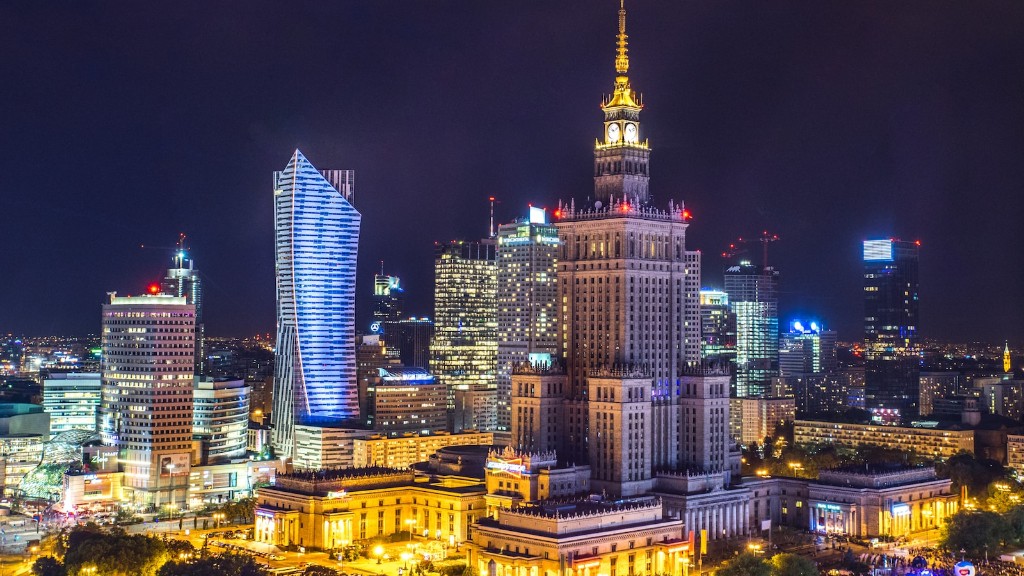Does Poland allow Dual Citizenship? Though not all countries offer it, there is a large range of countries that do. One such country is Poland, who in recent times has made some amendments to its citizenship law to allow dual citizenship. This article will offer an overview of both the current laws and what some experts think about it.
In 2020, Poland has allowed limited access to dual citizenship, however it is not fully recognised. Acquisition of a foreign citizenship can be done without renouncing the Polish citizenship in some cases. However, officially, the Polish state still considers dual citizenship to be illegal. Generally, is a citizen of Poland intends to acquire a foreign citizenship, the permission from the Polish government is necessary. This permission is usually granted only when the applicant can prove there are connections of public interest between Poland and the country whose citizenship they wish to gain.
In terms of international law, any country may, by its own laws, limit any advantages it grants to dual citizens. For example, some Polish citizens who gain a foreign citizenship will no longer be able to vote in Poland’s national elections or serve in its army. In addition, dual Polish citizens may be subject to interrelated taxation.
Dual citizenship in Poland may be accepted when one of the citizenships in question is that of the EU or one of the signatory states of the European Economic Area Agreement, among many other cases. If the foreign citizenship is not from the EU, the request for dual citizenship must be submitted to the Polish Ministry of Internal Affairs. In this case, the applicant must prove that they do not threaten the foreign policy of the Polish state, or obstruct the interests of Poland.
According to experts in the field, dual citizenship in Poland can be advantageous for many people. This is particularly true for those who may be interested in living outside of their native country and want to retain Polish citizenship. In some instances, dual citizenship can provide access to certain benefits. For example, some countries consider citizens of an EU member state as their own nationals, which grants them the right to certain benefits such as healthcare and reduced tuition fees in public universities.
Furthermore, some experts consider dual citizenship to be important for people who want to avoid any legal issues in relation to their original citizenship. It can be difficult for citizens of one country to renounce their citizenship to gain a new one, especially if they have close family ties in their native country.
It is clear that Poland allows limited access to dual citizenship. Whilst it is officially against their law, the country does offer some advantages that can benefit those who are eligible. However, it is important to remember that acquiring a foreign citizenship may have consequences, such as the possible loss of some rights.
How to Obtain Dual Citizenship in Poland
In order to obtain dual citizenship in Poland, the applicant needs to fulfil a variety of requirements. Generally, the applicant must have a valid Polish passport and proof of existing citizenship. In the case of a foreign citizen, they must present valid documents and documents proving their legal residence in Poland.
The process of obtaining dual citizenship in other countries normally involves filling out a series of forms, gathering the required documents, and submitting them to the relevant authorities. In Poland, the application for dual citizenship must be submitted to the Ministry of Internal Affairs, accompanied by documents that prove the applicant’s identity, current citizenship status, and legal residence in Poland.
In some cases, the authorities may request further documentation. For instance, if the applicant has a spouse or children who are also applying for dual citizenship, the family members’ documents must be included. It is therefore important to check with the relevant authorities to determine the exact requirements in order to ensure a successful application.
If the application is accepted, the applicant will receive a decision and will be granted dual citizenship. However, it is important to note that dual citizens are subject to certain conditions, such as the obligation to inform their native country about their foreign citizenship. Failure to comply with these regulations may result in the revocation of their dual citizenship.
Benefits of Dual Citizenship in Poland
While there are numerous advantages associated with citizenship in Poland, dual citizenship offers additional benefits such as the legal right to travel, work, and live in both countries. In addition, dual citizens can enjoy economic benefits such as the free movement of capital, goods, and services between the two countries.
Dual citizens of Poland also benefit from the protection of both countries should any legal issues arise. For example, a dual citizen of Poland and another country may be able to receive the protection of the laws of both countries if they are involved in a legal dispute in the other country. In addition, dual citizens may also be eligible for certain state allowances and social benefits in some countries.
Finally, dual citizenship provides the benefit of having access to two diverse cultures, languages, and experiences. For example, some parents may choose to obtain dual citizenship in order to allow their child to gain an education in a country other than their native one.
Implications
The decisions made with regards to obtaining dual citizenship can have legal implications and it is important to understand all the relevant laws and regulation in order to ensure that one has all the information before making any decisions. Prospective applications should also bear in mind the fact that any foreign citizenship obtained in addition to Polish nationality may limit some rights and privileges of Polish citizenship such as eligibility for certain offices or benefits.
Furthermore, dual citizens may have to meet a number of additional requirements such as income tax obligations in both countries. Moreover, the country in which a dual citizen visits, works, or lives plays a role in determining the laws and rights that apply to the individual. It is therefore important to consider the implications of dual citizenship carefully.
Tax Implications
Tax is perhaps one of the most significant implications of dual citizenship. Depending on the country of residence, dual citizens of Poland are generally liable to income tax in both countries. This means that dual citizens will be subject to double taxation. In some cases, international tax agreements between two countries may mitigate these liabilities, but this depends on the particular countries.
It is important to note that discrepancies between the tax systems of two countries may result in double taxation if the individual is a dual citizen. This is especially important for those who are living in one country but who maintain assets and other relations in another. For example, dual citizens may face double taxation if one of their countries taxes only income that is generated from its jurisdiction.
In addition, different countries may also have different laws related to the transfer of assets. For example, any transfers of funds may be subject to taxes in either or both countries if done incorrectly. It is therefore important to seek professional advice in order to ensure that any transfers are legal and correct.
Conclusion
In conclusion, it is important to bear in mind that obtaining dual citizenship in Poland can have a number of implications. It is therefore essential to understand the laws of both countries before making any decisions, and to consider all the possible implications before embarking on the process.





